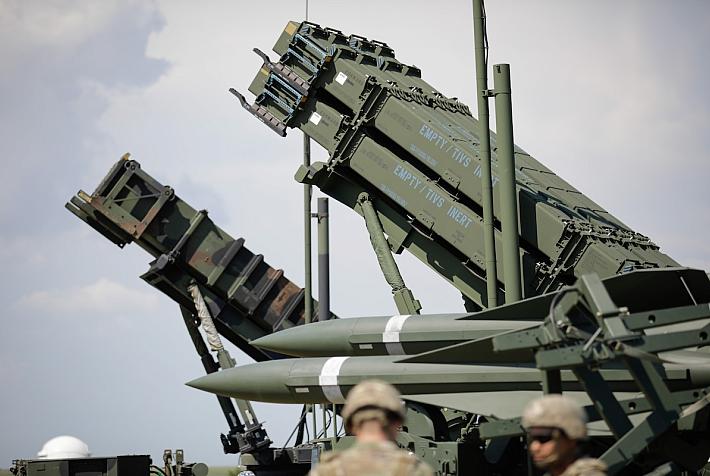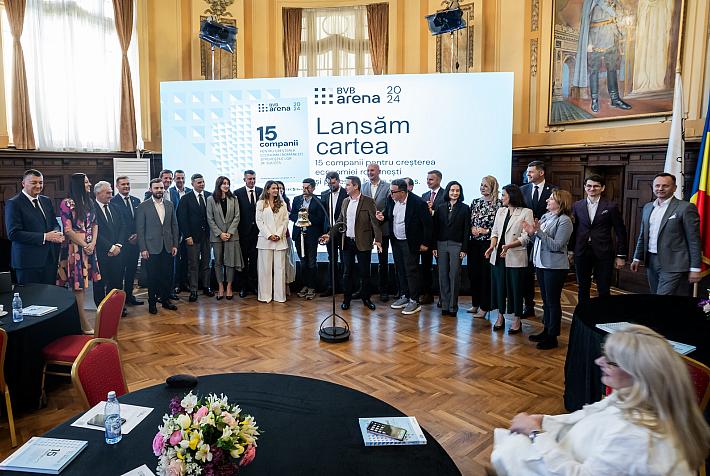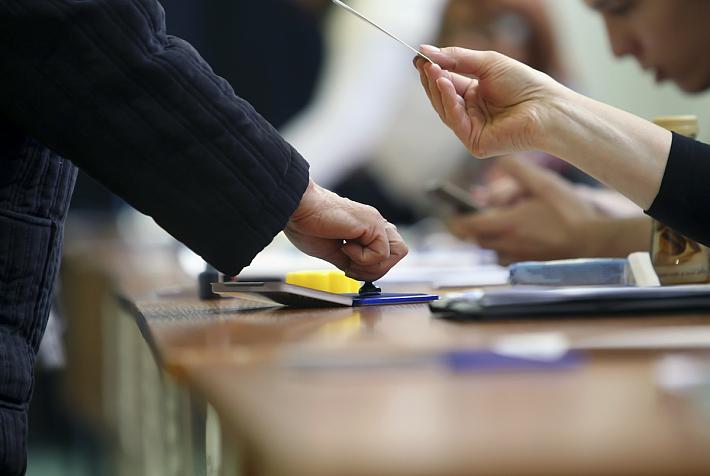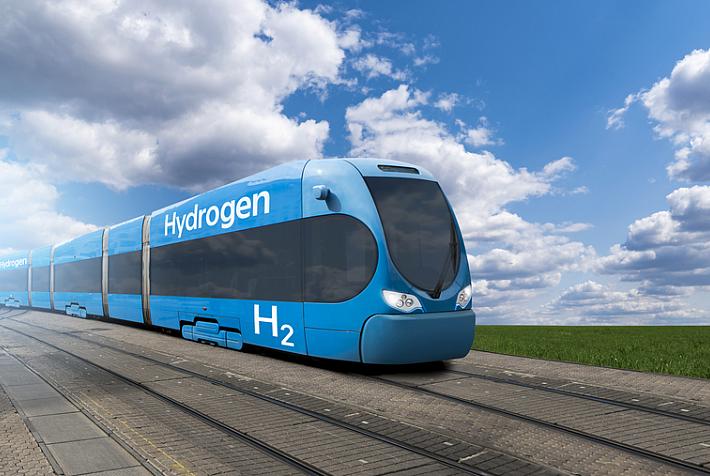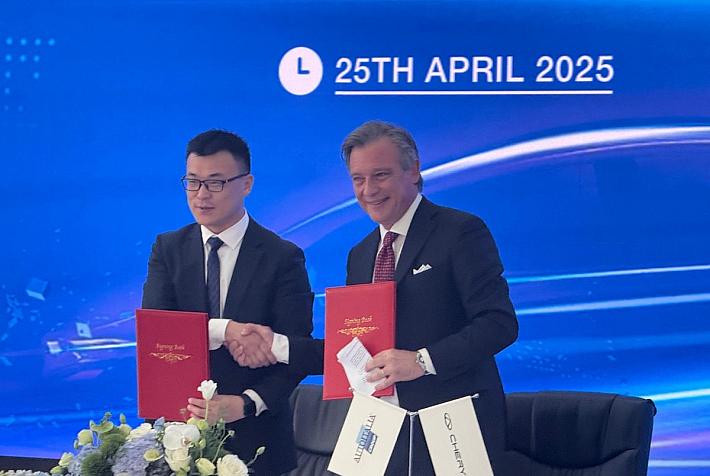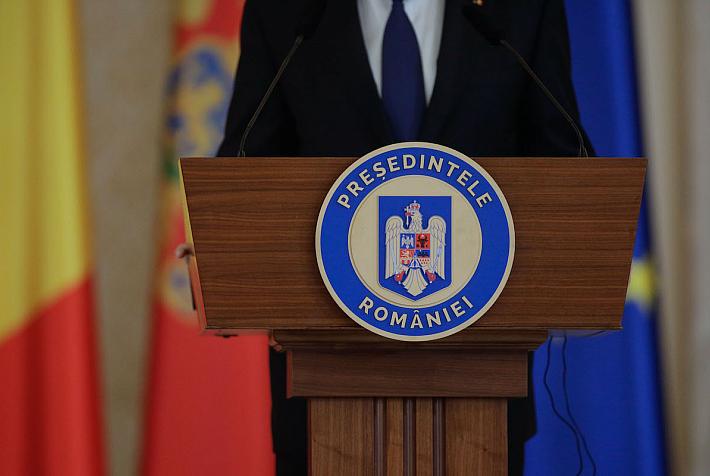Rastel.io: Romanian startup works to make smart bike parking an easy ride
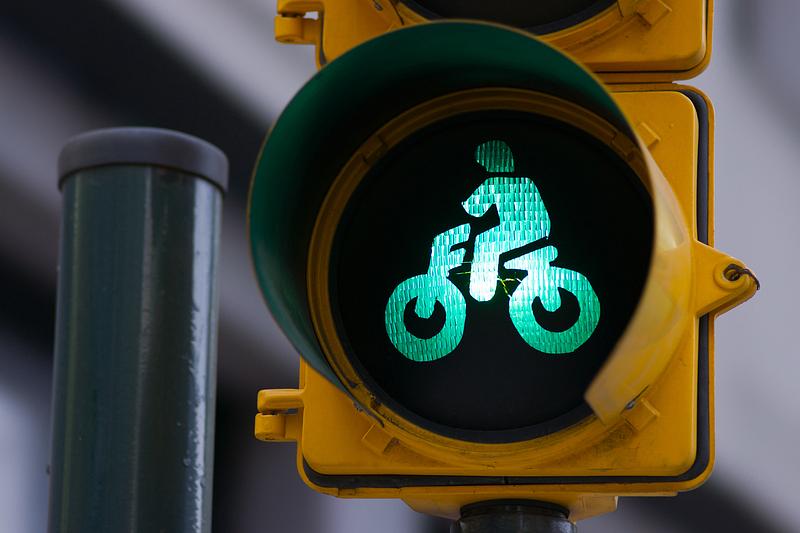
Romanian startup Rastel.io, whose story started at an innovation hackathon in Oradea, has developed a range of solutions designed for secure bike parking. As part of EIT Urban Mobility programs, it implemented projects in Dubnica nad Váhom, Slovakia, and Heraklion, Greece, and it is looking to expand its reach further.
The startup offers modular bike parking shelters designed to meet the requirements of any space, an app for cyclists that lets users find and access the network parking units without the need for several keys or access cards, an app for parking administrators, allowing the development of campaigns promoting and rewarding cycling, and tailored solutions.
The startup, co-founded by Tudor Beleuță, Sebastian Mihalache, Robert Kovacs, and Horea Toniuc, has been selected for several acceleration programs, including Black Sea ClimAccelerator 2022, a regional accelerator dedicated to green businesses in Romania and Bulgaria, Orange Fab, the one-year program for entrepreneurs with innovative products, and Rubik Garage Accelerator. Rastel.io was also one of the 2023 winners of the EIT Urban Mobility's Rapid Applications for Transport (RAPTOR) competition, which matches European cities facing urban mobility challenges with startups offering solutions. It was chosen to pilot its modular bike parking units in Dubnica nad Váhom, a city in Slovakia that is in the process of developing its first bicycle infrastructure "and a strategic approach to increase modal share." It is also working in Heraklion, Greece, in another EIT Urban Mobility project aiming to boost sustainable mobility in the city. Safe bike parking facilities are expected to encourage more cyclists to also use e-bikes, thus increasing the number of long peri-urban distance bike trips, the project initiators note.
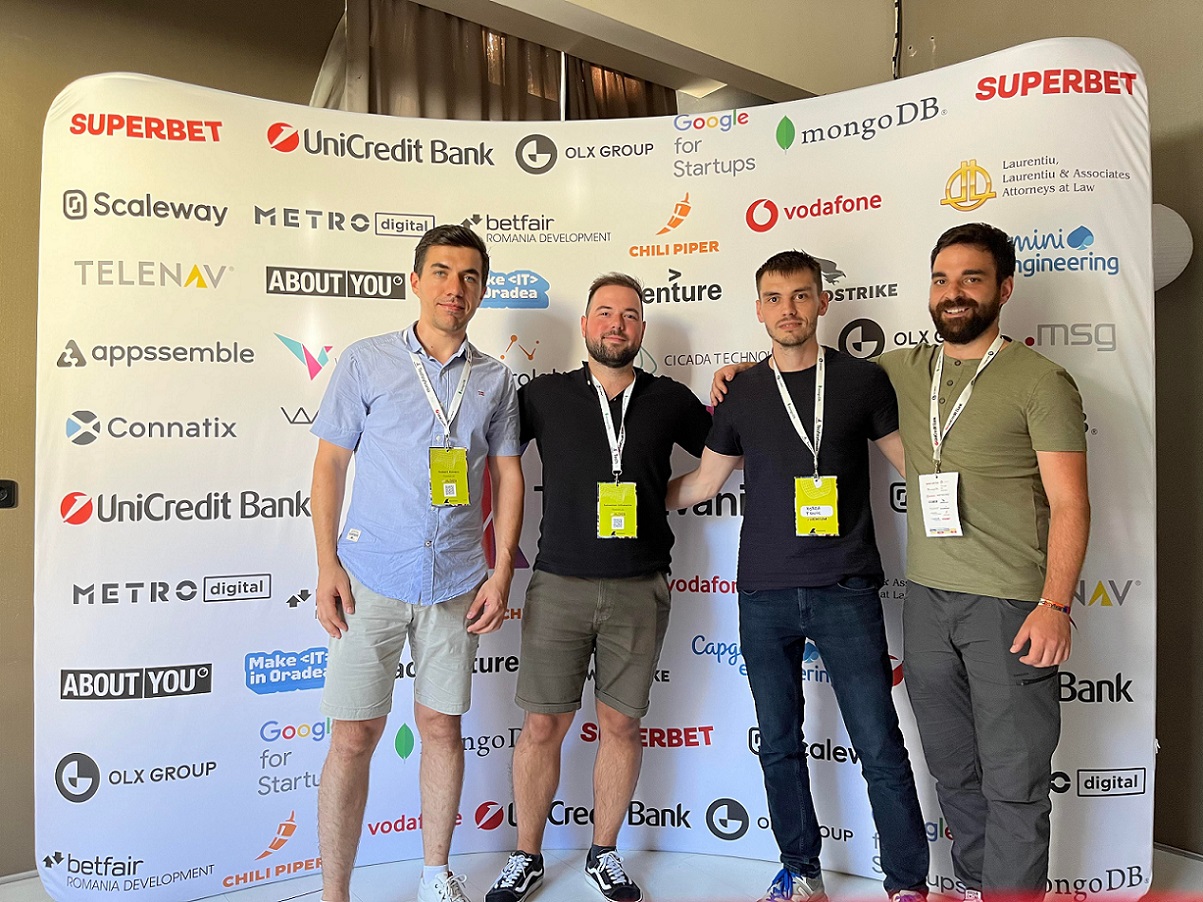
Locally, among several projects, Rastel.io implemented a smart and secure bike parking at Liberty Technology Park in Cluj-Napoca in 2022, and, the same year, it converted an old garage in a Communist-era neighborhood in Cluj into a smart bike parking unit, powered by solar energy. Last year, it installed more than 200 classic bike racks at more than 17 locations on the West University of Timișoara campus and a smart bike shelter in Tîrgu Jiu.
With more markets in the region looking to develop their cycling infrastructure, the startup is looking to expand its reach while welcoming potential collaborations with local municipalities. More on Rastel.io's record so far and its development plans in this email Q&A with co-founder Horea Toniuc.
How did Rastel.io come about? How did the team come together? Did you have an international model for the project?
The story of Rastel.io started in Oradea in November 2021, when three of the four co-founders (Tudor, Sasha and Robert) took part in the Urban Innovation Hackathon, an event organized by Urbanize Hub, where participants look for solutions to problems cities face. Rastel.io proposed a secure parking system for bikes and an app rewarding cyclists, and we were named winners. Horea, the fourth co-founder, had read by chance an article presenting the results of the event. He had started to work on a similar secure bike parking system. He contacted the other three co-founders, and after several talks, seeing that their visions coincided, they decided to work on a joint project.
All of us, the four co-founders, are cyclists and have spent quite a lot of time outside the country during our university years in the UK, France, and Germany. Although there are similar systems under various forms – either small shelters set up in car parking places, accessible using a mechanical key, or larger ones, accessible using an electromagnetic card – we have yet to see a dynamic approach to a parking network focused on the flexibility of shelters, accessibility for users, and traceability when it comes to safety. So, we started to develop a product that works at network level. From the start, our objective was also to reach the large cities in Europe, where the cycling culture is more developed than in Romania, and our product would benefit from the network effect and the existing ecosystem, thus catering to an extended number of cyclists.
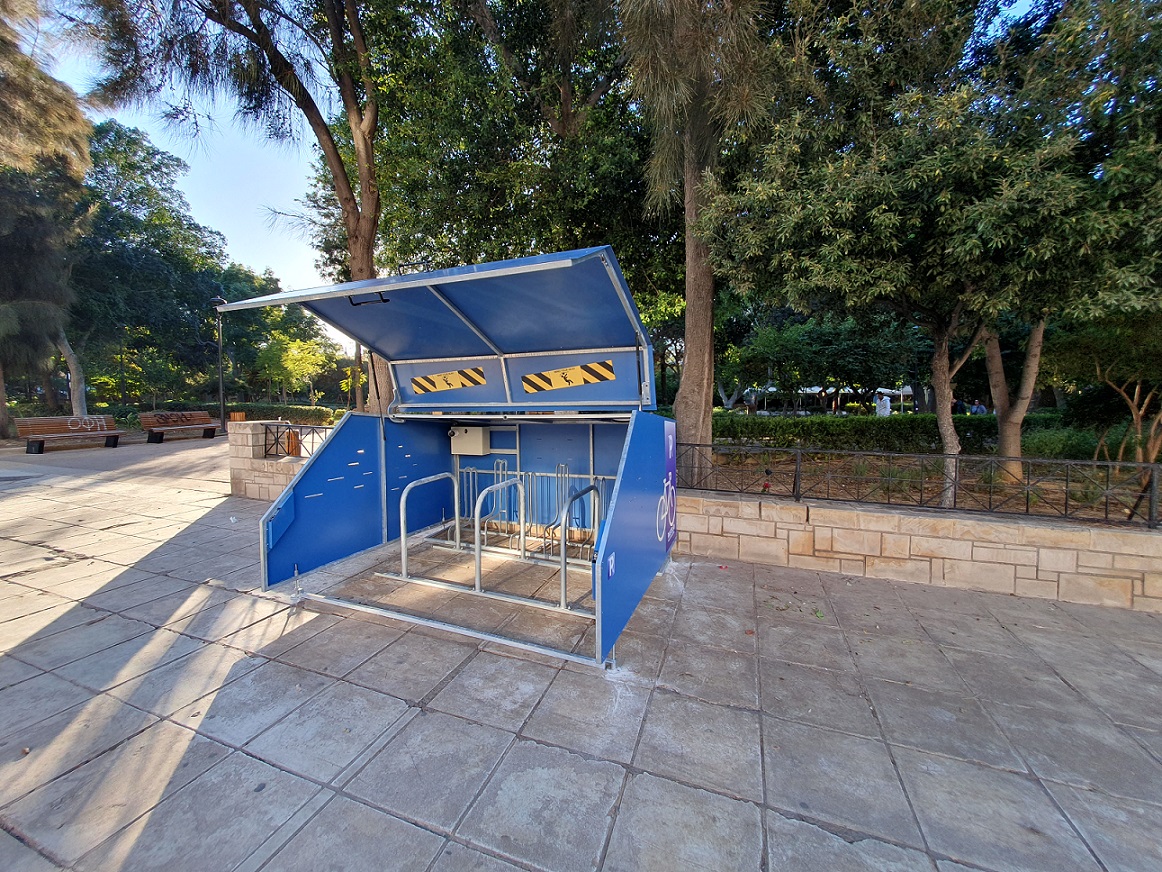
What resources were needed to start the project? What were the challenges in making it a reality?
First of all, a lot of dedication and sustained effort from the founders in defining the fundamental needs and solutions Rastel.io meets. Secondly, the initial investment to develop the MVP (minimum viable product).
The main challenges arose from the fact that we have a hardware product, relatively large in size, which entails production costs. Then came the moment to take the product 'out into the world' for it to be used and tested by cyclists and, at the same time, better understand their needs and how it can be improved later. This is where the second significant challenge emerged, namely finding an area that cyclists use where we could place the first unit.
If for the MVP funding, the solution came in the form of the grant received from EIT Digital Ventures, for the venue, the solution came from a private sector partner that trusted our project and offered us the needed space after several months of searching.
How many shelters/ bike parking units have you opened and what cities do you cover? What are your targets for the coming period?
So far we have set up 15 parking units: a hub, with several sub-units in Dubnica nad Váhom, Slovakia; a network of ten shelters throughout Heraklion, Greece, which attracted several hundred registered users in less than two months since its launch; and four units in Romania – two in Cluj, one in Oradea, and one in Târgu Jiu. We work with clients in the public and private sectors because the need for bike safety is shared.
For this year, we aim to consolidate the partnerships we have with the municipalities of Heraklion and Dubnica nad Váhom, by expanding the projects in these cities, and, at the same time, to continue the geographical expansion and the deepening of the business models we develop. We would, of course, be glad to have a first project at network level with a city in Romania. We are completely open to working with the local authorities to find the best collaboration formula for the benefit of cyclists.
What markets are you looking at for expansion? What factors shape the decision to expand and the markets you choose?
Geographically, for the coming period, the south, center and east of Europe, mainly because of accessibility (it is closer) and the fact that many of the markets are now in the process of expanding the cycling infrastructure. The main factor influencing the decision to expand is the openness we find with the local authorities and the community of cyclists. Regarding the market segments, we want to increase the added value we can bring to services focused on micro-mobility (delivery services, transport), real estate, or infrastructure development in general.
What funding sources do you target? How do you expect this year to be regarding funding for startups?
We are looking at obtaining funding to continue the development and improvement of our product but also to facilitate access to new markets and sectors. So far, we have been successful with the EIT Urban Mobility funding programs, which, besides the support in the form of non-refundable funding, also granted us support in facilitating the contact with municipalities abroad looking to benefit from our solution and with which to establish further collaborations. At the same time, for the future, we are looking at funding as investments, in strategic contexts. In what concerns startups in general, even though it is considered a more difficult period, we think it is an ideal moment to address real needs and take on the challenge of developing innovative solutions tailored to bring a significant positive impact.
What investment does a local public institution looking to install the Rastel.io solution need to make? What feedback have you had from the discussions with the local authorities? What differences do you see between the local approaches and those in other European countries where you have pilot projects?
The value of the investment depends on several factors, the most important being the initial size of the network and the collaboration format we agree on. We encourage the local authorities to work with us to find the best options to offer these essential facilities to cyclists. Size-wise, for an initial network of ten units, we are talking about an investment of several thousand euros, depending on the equipment (PV panels, surveillance cameras, e-bike charging sockets) and the functionalities (real-time monitoring, automated user ID validation, reward campaigns for cyclists, etc.).
At a national level we have noticed a certain reserve in moving on to actions following initial talks that were mostly positive. Whether talking about small pilot projects or large-scale solutions, we have seen many impediments caused by procedural factors, financial ones, or the municipalities' available time resources. Compared to other European cities, the attitude towards the critical need to develop the cycling infrastructure is a major difference. We thus see how projects dedicated to cars are prioritized while cycling is still seen as a non-essential means of transport.
Where are the bike shelters produced? How much does one cost?
The shelters are manufactured in Oradea, together with a local partner. The costs vary from project to project, depending on the clients' requirements. This is why we prefer to talk with those interested first to understand their specific requirements or other particularities that could impact the costs. We encourage all those interested in our products to contact us to discuss their requirements in more detail. They can schedule a meeting using the contact form on our website or email us.
How did the pilot project with the municipality of Dubnica nad Váhom go? What can cities in Romania adopt from the Slovak model?
We found at the municipality of Dubnica nad Váhom a lot of professionalism and the willingness to get involved and help at various stages of the project, starting from the clear designation of a set-up venue and obtaining the needed permits, preparing the area for the works to take place under optimal circumstances to promoting the solution to the residents through their social network channels and local media. We have learned that changing communication for the better doesn't require many resources but people who want to get involved and are willing to do sometimes more than their job requires, understanding that they perform a public service for themselves and their fellow citizens.
What local cities can adopt from the Slovak model is the willingness to experiment while also accepting that they can make mistakes, but understanding that these attempts, which can be done with low costs, are essential to bringing lasting changes in the community.
The answers were provided in Romanian and translated by Romania Insider.
(Opening photo: Blackalex | Dreamstime.com)
simona@romania-insider.com






